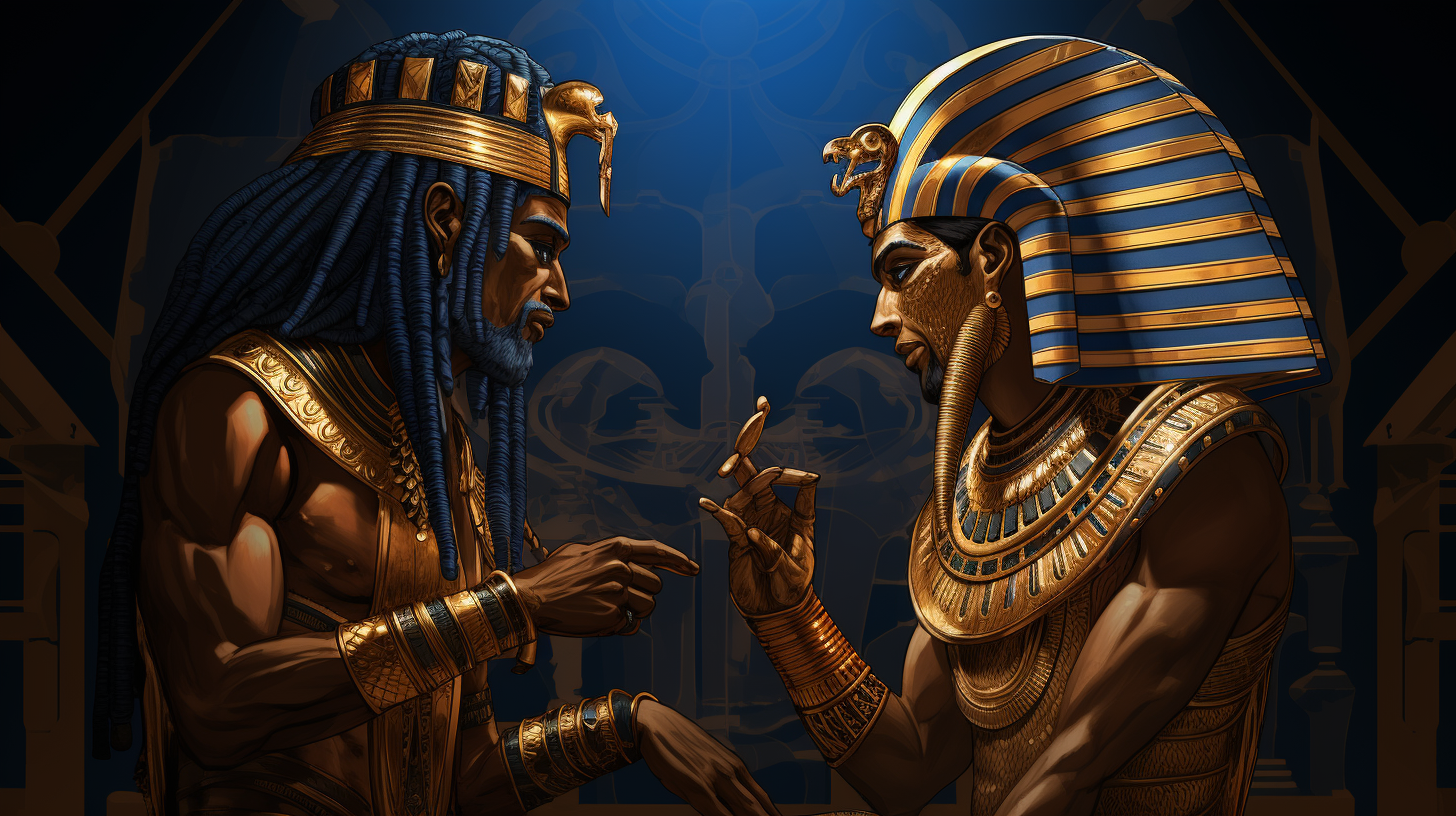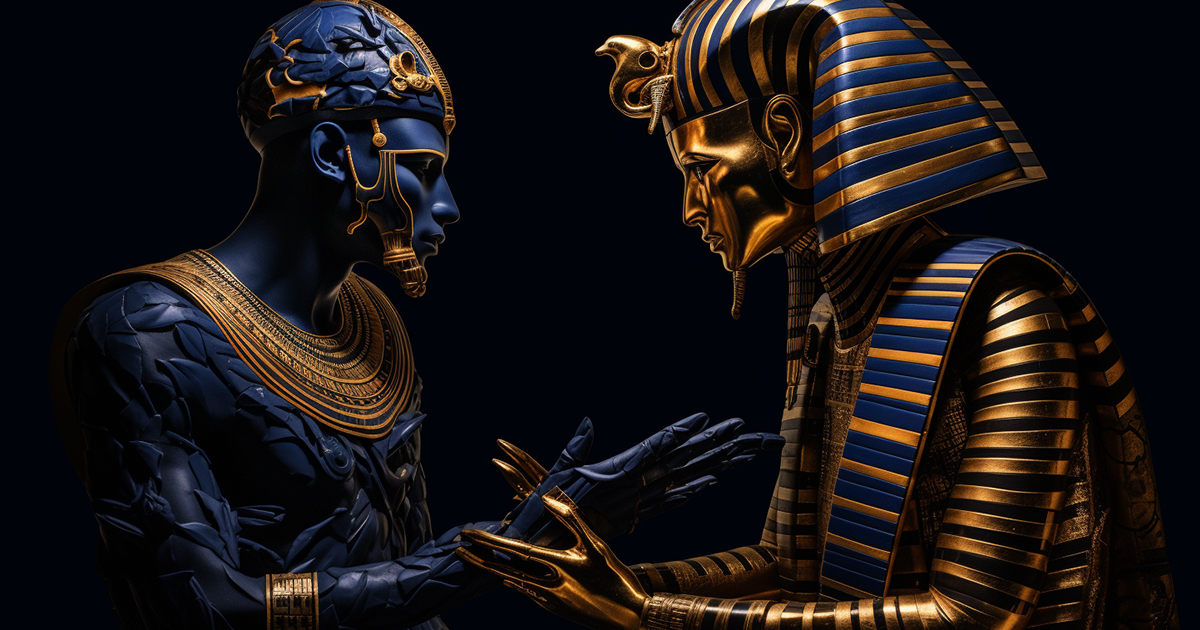The Genesis of a Story
Beneath the veil of historical enigmas and alternative theories lies an untold narrative awaiting discovery. Explored within the realms of Season 12, Episode 5 of “Ancient Aliens,” this captivating tale unveils a potential connection linking Moses to King Tut’s uncle, Ankhkheprure. The journey sweeps us back to January 26, 1909, in the Valley of the Queens, preceding the iconic unearthing of King Tut’s tomb. A series of events transpires during a theatrical performance, sparking investigations into the existence of Akhenaten and the fascinating parallels among him, his sibling Thutmose, and the biblical figure Moses. Let us embark on this compelling quest to unravel the ancient mysteries of Egypt and their plausible ties to biblical narratives.
Deciphering the Riddle
The episode paints a vivid picture at the Valley of the Queens, where Joseph Lindon Smith, a playwright, and artist, accompanied by Egyptologist Arthur Weigel, stages a play for Howard Carter’s team. The narrative revolves around a curse cast upon Pharaoh Akhenaten by the priests of Amun, prophesying his eternal haunting as a ghost for defying tradition. As the play unfolds, strange occurrences occur: a sudden tempest, an actress losing her vision, and the playwright’s wife falling gravely ill. These events cast doubt on Akhenaten’s legitimacy and the potential consequences of meddling with his heritage.

The Cryptic Puzzle of the Sarcophagus
As the narrative evolves, focus shifts to King Tut’s enigmatic sarcophagus, sparking debates. The middle coffin displays distinct facial features, with a cartouche bearing King Tutankhamun’s name, seemingly overlaid on an initial inscription of “Ankhkheprure.” A concealed cartouche beneath King Tut’s name reveals the designation “Ankhkheprure,” unrelated to the young ruler. This revelation poses a perplexing question: why was a sarcophagus intended for Ankhkheprure reassigned to house King Tut’s remains?
Venturing into the Mystery of Ankhkheprure
Ankhkheprure transcends being merely a name in Egypt’s historical tapestry. Monarchs often adopted throne names divergent from their birth names, intimating that Ankhkheprure might correspond to a significant, enigmatic figure within King Tut’s lineage. This conjecture suggests that Ankhkheprure could potentially be Prince Thutmose, purportedly the brother of Akhenaten, with unrealized aspirations to ascend the throne.
The Provocative Proposition by Freud
A surprising narrative turn introduces a thesis attributed to Sigmund Freud, the eminent psychoanalyst with a profound interest in Judaism and ancient Egypt. In 1939, Freud postulated that monotheism originated from Akhenaten, hinting that someone within Akhenaten’s circle, possibly his brother Thutmose, personifies the historical character of Moses.
Interlacing Threads of Narratives
Freud’s postulation draws parallels between the biblical depiction of Moses and the historical chronicle of Thutmose, with the name “Thutmose,” meaning “son of the god Thoth,” bearing significant weight. By extracting “Tut” from the appellation, “Mose” intriguingly mirrors “Moses.” Moreover, Moses being nurtured as a scion of royalty closely resonates with Thutmose’s historical positioning.
Witness the Video Here:
In Closing
The “Ancient Aliens” installment, “Is Moses King Tut’s Uncle?,” guides us through a mesmerizing expedition across ancient Egypt, unraveling mysteries and plausible connections among Akhenaten’s lineage, Thutmose, and the biblical Moses. While the notion of Moses’ kinship with Egyptian royalty may seem audacious, it underscores the enduring fascination of ancient history and the excitement of unearthing hidden ties spanning diverse epochs and civilizations. Whether these hypotheses find validation or not, they stand as a testament to the boundless marvels and conundrums that continue to captivate us, bridging the past with our ceaseless quest for wisdom and enlightenment.
